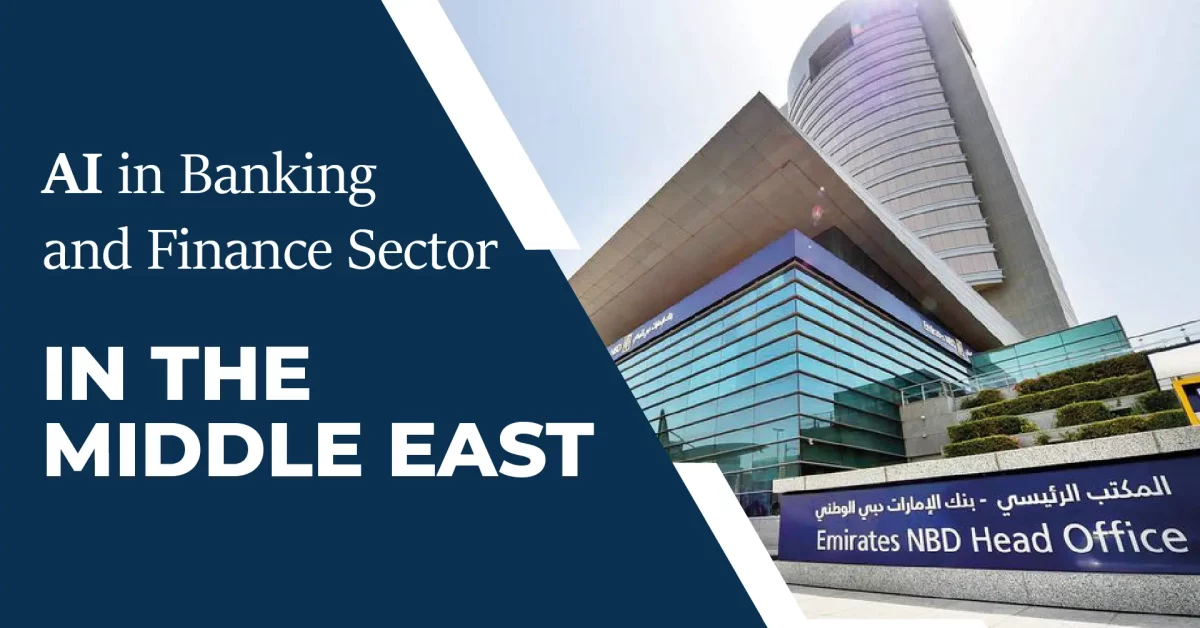
Akkomplish is a global business solution and service provider for your business transformation needs and facilitating holistic organizational growth with impeccable standards.
Call Us: +1 - 980 347 3323
Email: info@akkomplish.com
Akkomplish USA LLC
155 Gibbs St 4th Floor, Rockville Maryland 20850 United States
AI in Banking and Finance Sector – The Middle East Chapter
The UAE banking sector acts as the trendsetter in embracing new technological innovations. Banks like Emirates Islamic Bank, Emirates NBD, and First Gulf Bank are leading providers of digital banking services.
The entire banking industry is flooding with new technologies, and Artificial intelligence is one of the many technologies which has the potential to transform overall banking operations as per Ghurair. [2]
Technological adaptation in the banking sector is gradual in the Middle-eastern region as compared to technological adoption in other sectors. One major reason behind it is the high rate of human involvement in this sector.
Despite this fact, some areas of the banking industry where artificial intelligence is successfully applied are discussed below:
Tailored Financial Services: AI aids the analysis of stock markets and suggests recommendations to match the financial goals of individual customers.
Underwriting: Artificial intelligence systems that can leverage unstructured data in the decision-making process can automate this function.
Voice Aided Banking: Language processing using artificial intelligence and machine learning can reduce human error and improve the efficiency of the process.
Data-oriented Loaning Decisions: AI analysis huge chunks of data, performing calculation and prediction capabilities to aid in developing strategies in the financial loaning department for better returns.
Digitalization of Branches: By establishing a comprehensive platform using artificial intelligence, the tedious banking process can be replaced with complete document digitization.
Personalized Client Services: Through big data and machine learning, personalized investment suggestions given to clients can prove to be more accurate. Some industry leaders are taking AI implementations to the next level.
Simudyne has added thousands of computer engineer jobs. It allows financial institutions to run stress test analyses and test the waters for market contagion on a large scale. [3]
As per a survey conducted by IJCSNS International Journal of Computer Science and Network Security, [4] all participants of this survey were aware of the application of AI in the banking and finance industry. But64% of the 200 participants admitted non-adoption of artificial intelligence systems in their banks, 33% of the participants acknowledged the application of AI systems in their concerned banks, and the remaining 3% were unsure.
Most participants i.e.,72%, believed that AI was majorly applied for automation of the processes. Around 17.5% believed that AI helped reduce human error and personalized services.
According to Wells Fargo, over the next decade, AI, through robotic process automation (RPA), will replace 200,000 banking jobs. [5]
AI and Analytics revolutionize the traditional banking methods making them more robust, integrated, and dynamic ecosystems to meet the ever so challenging needs of the customers. It harbors tremendous scope to capitalize on future opportunities and is fundamental to the banking sector to build resilience for upcoming challenges in the sector.
The banking and financial sector focuses on advanced methods to address customer needs to help them work efficiently. Artificial intelligence tech offers strategic insights into the area of opportunity, helping banks to respond faster and seamlessly to the needs of stakeholders.
Kasisto has backboned AI assistants for several banking institutions (including the UAE-based digital bank Liv., DBS Bank, Standard Chartered Bank, and TD). The bank’s KAI-based bot aids customers in making international transfers, blocks credit card charges, and transfers them to human help when needed. [6]
The use of virtual assistants through AI in Banks powered by ML technologies reduced the response time drastically and resolves customer queries in real-time.
AI is used for the Risk Management process and Machine learning algorithms empower Banks to analyze data from the market, credit reports, historical data, etc. to understand various risks such as default risk, reputation risk, price risk, concentration risk, and more.




